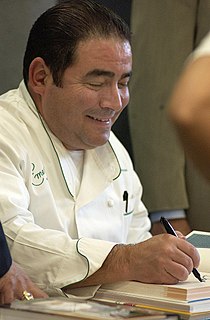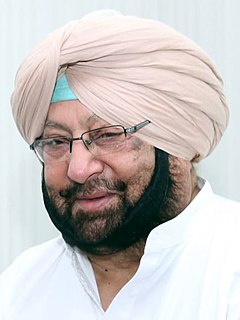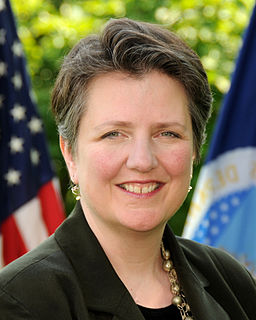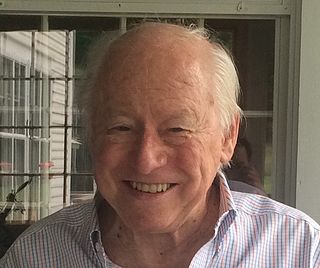Top 779 Farmers And Ranchers Quotes & Sayings - Page 11
Explore popular Farmers And Ranchers quotes.
Last updated on November 14, 2024.
Unfortunately, the Hindi film industry is a sitting duck; it is easy to hurl malevolent accusations. It is a systematic campaign to divert attention from real issues, failing economy, China border tensions, spiraling Covid cases, and farmers' agitation by putting the spotlight on the supposed ills of the film industry.
It depends as there's many different types of chefs, some who cook for awards and others who cook to make their restaurant a great business. There are those who cook for a lifestyle, they'll have come through pubs and they like to have the connection to the farmers and the chickens and the natural produce. So for each chef it'll be slightly different.
The majority of small-holder farmers in Africa are women and, in urban areas, you're primarily looking at women-led households. So we can't solve hunger if we don't have gender-sensitive programming that addresses access to opportunities for women, whether it's through education or tools for cooking, like solar-powered stoves.
I have talked to people across the country struggling in the face of an altered climate. New Jersey homeowners are trying to rebuild after Superstorm Sandy. Miami government officials are trying to plan for rising seas and flooded streets. California farmers are trying to make it through the state's worst drought on record.
One of the reasons why we started the Green Belt Movement is to work with these ordinary peasant farmers so as to educate them that, despite the fact that they are poor, it is in their interest to protect the soil that they have, to protect the forest they have, to protect the land that they have, because if they don't do it, things can be only worse tomorrow for them for them and for their children.
I'm obviously very hippie-like, and I'm always in a different city and town and country, and I thought, 'Why is it that the big food chains are always so promoted? I want the whole ingredients. I don't want preservatives. I want what this town and these farmers produce and see how their chefs create.'
Globalization has become an ideology with no constraints. And now, nations are forcing themselves back into the debate. Nations with borders we control, with people that we listen to, with real economies, not Wall Street economies, but rather factories and farmers. And this goes against this unregulated globalization, wild, savage globalization.
Land Grant College Act is the jewel of Republican reform. It had not occurred to any other country to educate their farmers and workers. When the British studied the reasons for American success in 1851, the consensus was that Americans workers were well educated. So they didn't oppose progress the way British workers did.
One of the remarks made by farmers at their public discussion of these problems suggest that they are rapidly ceasing to think of animals as sentient beings at all. If you handle vast numbers of creatures which are in any case going to die soon, it is, I suppose, easy to get into a state of mind in which they seem to be merely machines.
Now that we've discovered how to actually develop policies and projects holistically, if we can get the barriers out of the way and release the creativity that's in our universities, our farming organizations, amongst our farmers and land managers, we'll be astounded. As I'd like to express it, the human spirit will fly.
In the final analysis, national struggle is a matter of class struggle. Among the whites in the United States, it is only the reactionary ruling circles that oppress the black people. They can in no way represent the workers, farmers, revolutionary intellectuals and other enlightened persons who comprise the overwhelming majority of the white people.
It's completely different, for instance, to report on poor farmers in Africa than it is to report on, say, poor African-Americans. The familiarity of my readers with the terrain, and their preconceptions, are quite different in those two cases, and their perspective, as I imagine it, has to be taken into account at every turn.
In the late 19th century there was a major union organization, Knights of Labor, and also a radical populist movement based on farmers. It's hard to believe, but it was based in Texas, and it was quite radical. They wanted their own banks, their own cooperatives, their own control over sales and commerce.
We have to understand that we want to pay the farmers the real price for the food that they produce. It won't ever be cheap to buy real food. But it can be affordable. It's really something that we need to understand. It's the kind of work that it takes to grow food. We don't understand that piece of it.
In the ten years leading up to 2013, quinoa prices nearly tripled on the back of skyrocketing international demand for the latest 'superfood'. The grain had traditionally been cultivated in the high Andean plateau, principally for household consumption. But as prices rose, farmers' incentive to sell it as a cash crop grew.
Much of the criticism of economic globalization has centered on factory labor abuses. But the majority of the world's poor are not employed in factories; they are self-employed - as peasant farmers, rural peddlers, urban hawkers, and small producers, usually involved in agriculture and small trade in the world's vast "informal" economy .
Cooking creates a sense of well-being for yourself and the people you love and brings beauty and meaning to everyday life. And all it requires is common sense – the common sense to eat seasonally, to know where your food comes from, to support and buy from local farmers and producers who are good stewards of our natural resources.
I don`t think this has been fully understood by the United States... If you look at India, China and Russia, they all have strong education heritages. Even if you discount 90 percent of the people there as uneducated farmers, you still end up with about 300 million people who are educated. That`s bigger than the U.S. work force.
Whether the struggle was between English merchants and the American colonies, pre Civil War northern manufacturers vs. southern slave holders, or American grain farmers and auto manufacturers seeking advantage in the Mexican agriculture and labor markets in the 1990s, U.S. policy has reflected the economic clash of interests of the day.
It's a simplification to say that the men [during Stone Age] went to war to maintain their dominance over the women. The men would help dig agricultural ditches because they were superb farmers. That was very heavy lifting work. But then they just preened themselves, and put bird-of-paradise plumes [in their hair], and smoked dope.
At 17, I lived in Nicaragua to show solidarity with the Sandinista socialist revolution. At 23 I raised money for Guatemalan women's cooperatives. In my early 20s I lived in the semi-Amazon doing research with small farmers fighting land invasions. At 26 I helped expose poor conditions at Nike factories in Asia.
This is where I would lodge my deepest criticisms. We have very whimsically been threatening and then backing off of tariffs. The people who are paying the price for the lack of strategy are North Carolina consumers who are paying more for durable goods and North Carolina farmers who don't have markets today.
I think much of my inspiration comes from nature. I feel alive when I take a long hike with my dog or when I just spend time outdoors, appreciating the beauty of this world. I even feel alive and inspired when I walk through farmers markets appreciating and learning about local fruits and vegetables.
I'm engaged in food on so many levels, and I love that. So my work, my craft, is around food, and writing is one aspect of it; communicating a narrative, cooking online is one aspect of it; solving the food chasm that we have in Harlem and finding a farmers market is another one, and all of them are equally exciting for me.
Food security is not in the supermarket. It's not in the government. It's not at the emergency services division. True food security is the historical normalcy of packing it in during the abundant times, building that in-house larder, and resting easy knowing that our little ones are not dependent on next week's farmers' market or the electronic cashiers at the supermarket.
There's a man in the world who is never turned down, whatever he chances to stray; he gets the glad hand in the populous town, or out where the farmers makes hay; he's greeted with pleasure on deserts of sand, and deep in the aisles of the woods; wherever he goes there's a welcoming hand-he's the man who delivers the goods.

























































